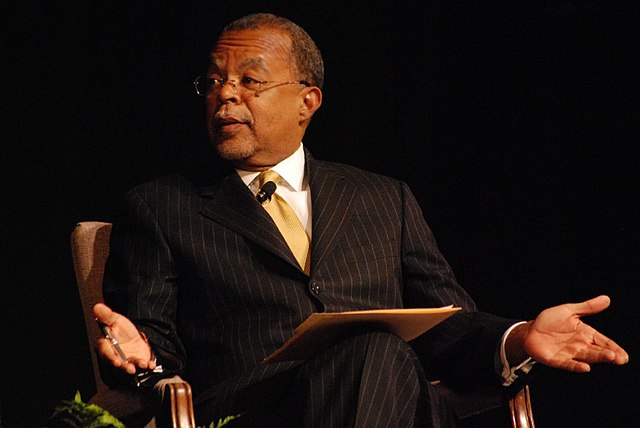
News
Summers Will Not Finish Semester of Teaching as Harvard Investigates Epstein Ties

News
Harvard College Students Report Favoring Divestment from Israel in HUA Survey

News
‘He Should Resign’: Harvard Undergrads Take Hard Line Against Summers Over Epstein Scandal

News
Harvard To Launch New Investigation Into Epstein’s Ties to Summers, Other University Affiliates

News
Harvard Students To Vote on Divestment From Israel in Inaugural HUA Election Survey
Black Excellence at Harvard: The 2022 W.E.B. DuBois Ceremony

On Oct. 6, the Hutchins Center for African and African American Studies honored seven individuals who have worked to advance the African American community with the W.E.B. DuBois Medal — Harvard’s most distinguished award in the discipline of African and African American Studies.
This year’s recipients included NBA Hall of Famer and cultural critic Kareem Abdul-Jabbar, feminist and acclaimed author Chimamanda Ngozi Adichie, actress and producer Laverne Cox, philanthropist and President Emeritus of the Museum of Modern Art Agnes Gund, business leader Raymond J. McGuire, former Massachusetts Governor Deval Patrick, and artist Betye Saar, all of whom took the stage in Sanders Theater to be honored for representing hundreds of years of work toward racial justice.
Henry Louis “Skip” Gates Jr. — historian, Harvard professor, and current director of the Hutchins Center — hosted the event, accompanied by President Larry Bacow and former 2006 medalist and chair of the Center’s national advisory board Glenn Hutchins. The ceremony was held in person for the first time since 2019, enabling over 300 students from 21 public and independent schools in Boston and Cambridge to attend.
Each speaker delivered moving and emotional speeches about the urgency of advancing equity for Black people, emphasizing how much work must still be done toward this end.
Kareem Abdul-Jabbar, towering over fellow awardees with a beaming grin, spoke of his connection to the great W.E.B. DuBois. Abdul-Jabbar mentioned that his children recently performed a DNA and ancestry test, revealing that his great uncle was Dr. John Alcindor, a physician and activist who befriended DuBois at the First Pan-African Conference in London. Adbul-Jabbar has followed in these footsteps of excellence by leading the NBA in all-time scoring, authoring columns and best-selling books, and pursuing a career in public service.
Abdul-Jabbar thanked the eponymous DuBois for his foundational anti-racist work.
“DuBois had a great impact on me. He spoke to the deepest part of who I was as an African American… he gave me the words to express what I was thinking about,” Abdul-Jabbar said.
Raymond McGuire — a Harvard College, Business School, and Law School alumnus — spoke to the need for more genuine efforts to advance equity in public service. McGuire, who served as the head of banking for the Citigroup Corporate and Investment Banking, has complemented his impressive career in finance by chairing the board of the Studio Museum in Harlem — an institution dedicated to Black art and media.
“Too many people that go into public service are really self-service,” McGuire said.
Laverne Cox — the first openly trasngender person to be nominated for an Emmy award — is likewise the first transgender recipient of the W.E.B. DuBois Medal. Cox is best known for her role on the hit Netflix show “Orange is the New Black.”
In a post-ceremony interview with The Crimson, Cox laid out recommendations for ways young people can contribute to social justice work.
“We need a movement to get money out of politics…The filibuster, abortion rights, voting rights, none of these things can happen because all of our politicians, Democrats and Republicans, have been bought off. We need a grassroots movement from young people to get money out of politics. We have legal bribery in this country,” Cox said.
The speeches clearly resonated with the students and faculty in attendance, including Buckingham Browne & Nichols Upper School faculty member Jade Duval.
“Laverne Cox would have to be my favorite speaker just because of the way people got so excited to hear her speak. I just feel like as someone who’s young and getting into education… I think that it’s important to take notice of Black people who are doing work in media right now,” Duval said.
Cox wasn’t the only recipient who spoke directly to their youthful audience. Deval Patrick — the first Black governor of Massachusetts and a Harvard College and Law School alumnus — passed along a message from his grandmother that he lives by, echoing the optimism of the other speakers.
“Hope for the best and work for it,” Patrick said.
Want to keep up with breaking news? Subscribe to our email newsletter.
